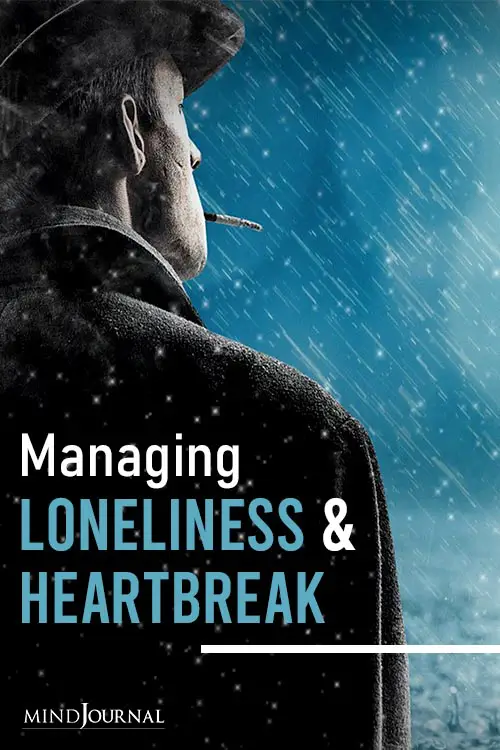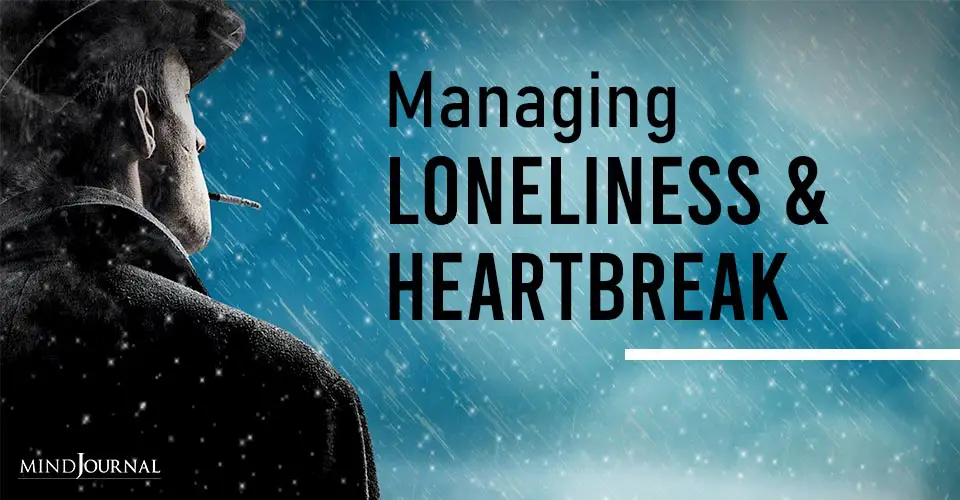Managing feelings of loneliness and heartbreak is not an easy task. Addictive behavior is often an attempt to avoid the deeply painful feeling of loneliness, heartbreak, and helplessness. Yet this inner abandonment leads to even more problems.
My experience from years of counseling individuals and couples is that most of the problems from which people suffer stem from how they handle the events of life, rather than the events themselves.
Certainly traumatic and tragic events such as loss of loved ones, financial loss, and health issues are extremely challenging. However, some people manage to move through these events with equanimity, while others remain stuck in fear, anxiety, anger, and depression. The difference is in how people handle deeply painful feelings.
I have discovered that there are three core feelings that most people will do almost anything to avoid feeling: loneliness, heartbreak, and helplessness.
Loneliness is an intensely sad, sinking or burning feeling within. This feeling can be triggered in numerous situations, such as:
- Loss of a loved one.
- Not having a partner, family, or friends with whom to share time and love.
- Being around others but being closed off to them.
- Being around others when they are closed off to you.
Related: 5 Famous Spiritual Leaders On The Deadly Sickness of Loneliness
Other than a traumatic loss, the latter is often the most challenging in everyday life, and this can occur throughout the day.
For example, you walk into work happy and open. You greet your friend, and he or she barely responds to you.
If you are truly open to your own feelings, you will feel a stab of loneliness. Yet most people are so closed off to this feeling that they immediately attempt to avoid the feeling with some kind of addictive behavior.
They might grab a donut while shaming or blaming – telling themselves that they must have done something wrong or that their friend is a jerk. These addictive behaviors are geared to protect against feeling the pain of loneliness. And they work for the moment to appease the feeling, but the feeling doesn’t actually go away. It just goes deeper within and may eventually cause physical symptoms, such as back pain or some form of illness.
Heartbreak can occur in many different situations, such as:
- Loss – of a loved one, of health, of financial security
- Others being unloving to you, to others, to animals, to the planet
- Others harming themselves
Helplessness is a similar feeling to loneliness – intense inner turmoil. In the example above of greeting your friend and receiving a cold response, not only do you have the stab of loneliness, but you also feel the pain of helplessness over your friend’s behavior.
You cannot make him or her connect with you. However, because this is such a difficult feeling, you don’t want to know that you cannot have control over another or over the outcome of things.
To avoid knowing about your lack of control, you may shame yourself: “It’s my fault. If I’m different, I can get others to be different.” Or you might blame your friend, attempting to get him or her to change. Both shame and blame are attempts to avoid accepting helplessness over others.
Self-Abandonment
Once you turn to addictive behaviors such as food, alcohol, drugs, activities, shame, and blame, you have abandoned yourself.
In attempting to avoid feeling the loneliness, heartbreak, and helplessness, you have created inner aloneness – self-abandonment. Self-abandonment occurs when your intent is to avoid pain rather than lovingly attend to your authentic feelings.
The combination of avoiding loneliness, heartbreak, helplessness, and the aloneness that comes from inner abandonment can lead to anxiety, depression, and despair. People then often turn to prescription drugs to further avoid their feelings.
Managing the feelings of loneliness, heartbreak and helplessness is not as hard as you may think it is.
Related: Spiritual Loneliness: What To Do When No One Understands You
If you practice the following aspects of Inner Bonding, you will find that you do not need to use your various addictions to avoid pain.
- Stay tuned to your body/feelings so that you know when you are feeling lonely or helpless. It’s very important to be able to acknowledge and name the feeling, and it may take some time to recognize these feelings since you may have been avoiding them for so long. Consciously decide that you want responsibility for nurturing and then releasing these feelings.
- Welcome and embrace the feelings, opening with deep compassion for these feelings. Connect with a spiritual Source of love and compassion (which you can learn to do through practicing Inner Bonding), open to this Source, and ask for help in being in compassion for the feelings.
- Hold the feelings as you would a child who is hurting, with deep love and understanding. Just be with the feelings with deep acceptance of them for a few minutes.
- Open to learning about what the feelings are telling you about a person or a situation, and about what would be the loving action toward the person or situation.
- Consciously be willing to release the feelings. Imagine the feelings of loneliness, heartbreak, and helplessness moving through you and being released into the Universe – into Divine Love. Ask Spirit to replace these feelings with inner peace.
You will find that these painful feelings will release if you practice these steps rather than abandon yourself in the face of painful events and experiences.
Written by Margaret Paul, PhD
For information or to schedule a phone or Skype session: 310-459-1700 • 888-646-6372 (888-6INNERBOND) http://www.innerbonding.com










Leave a Reply
You must be logged in to post a comment.